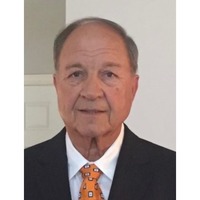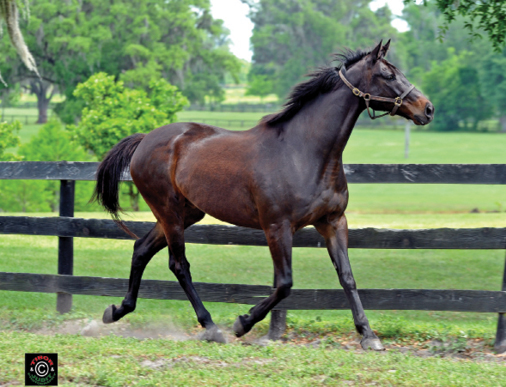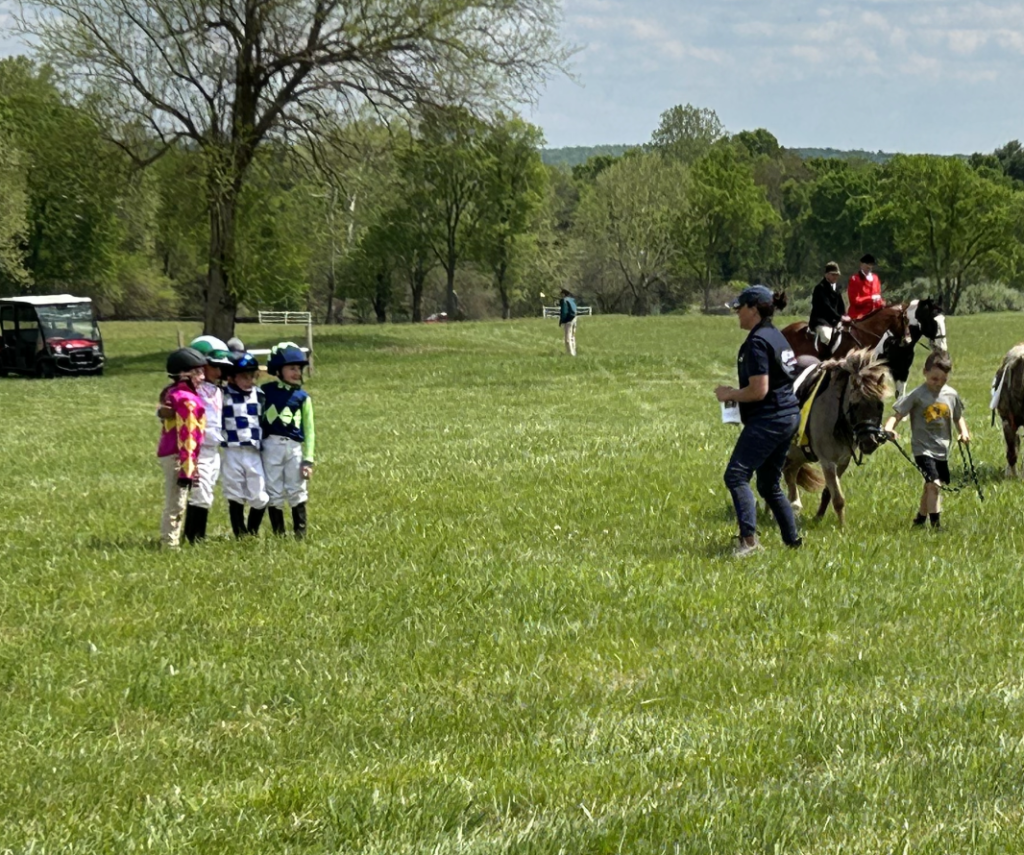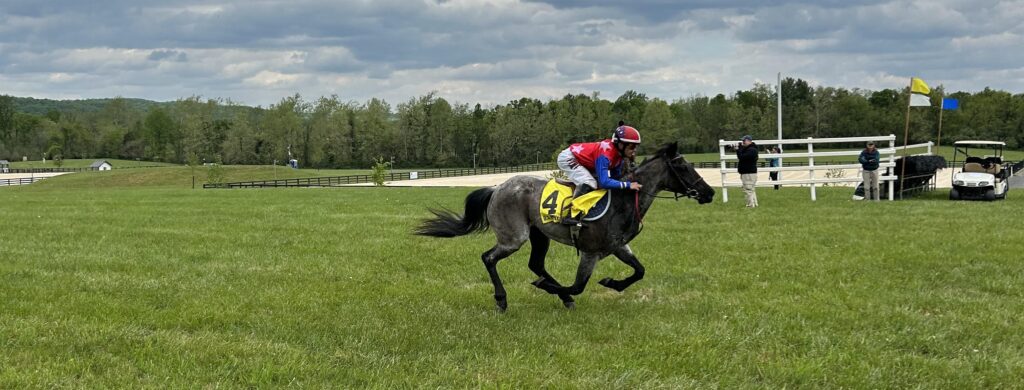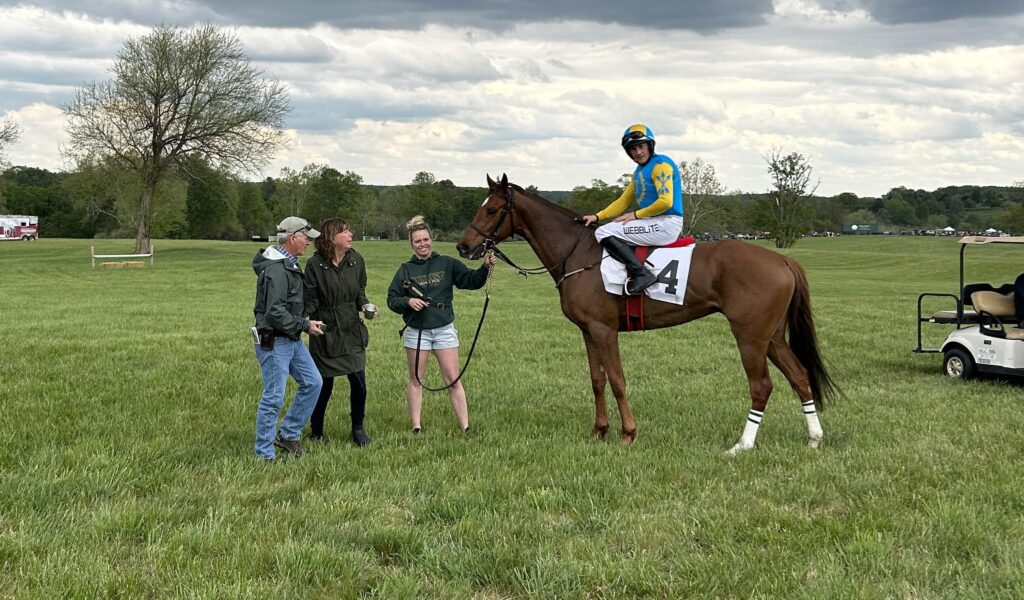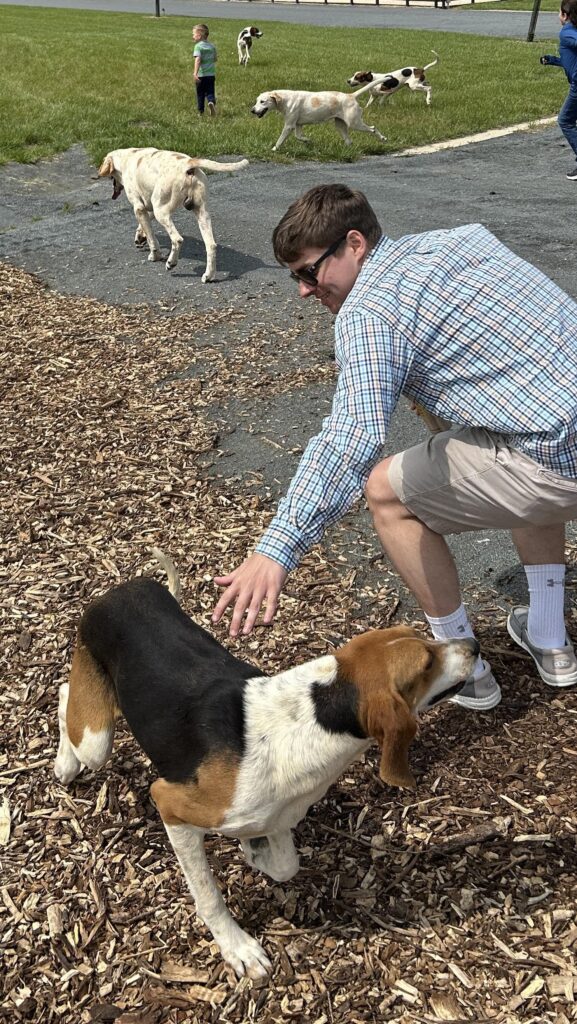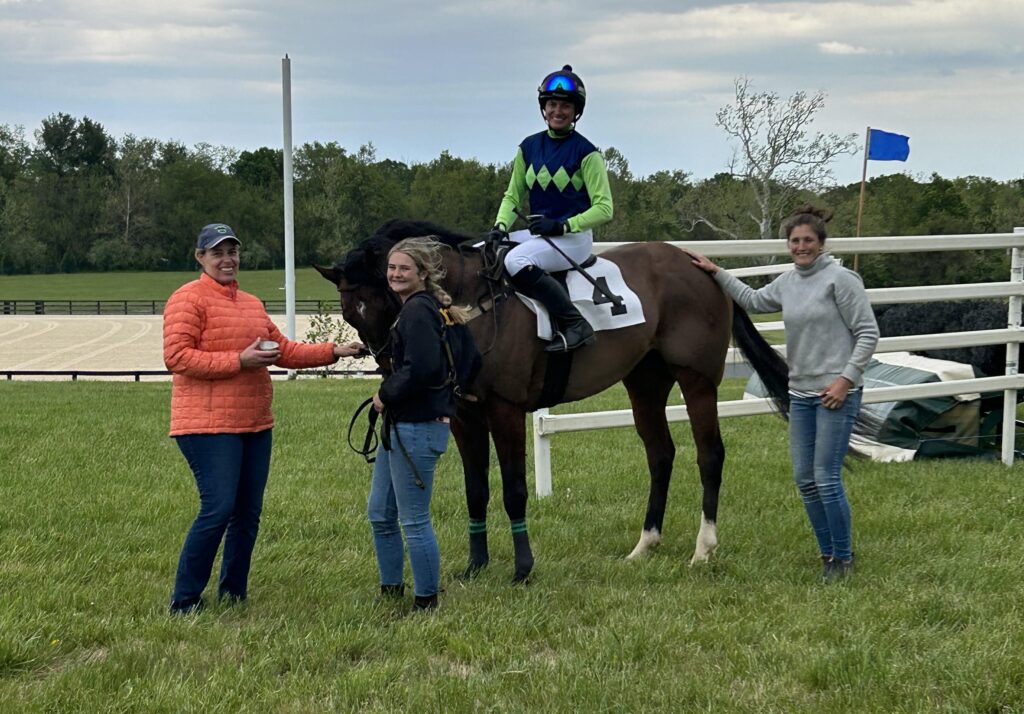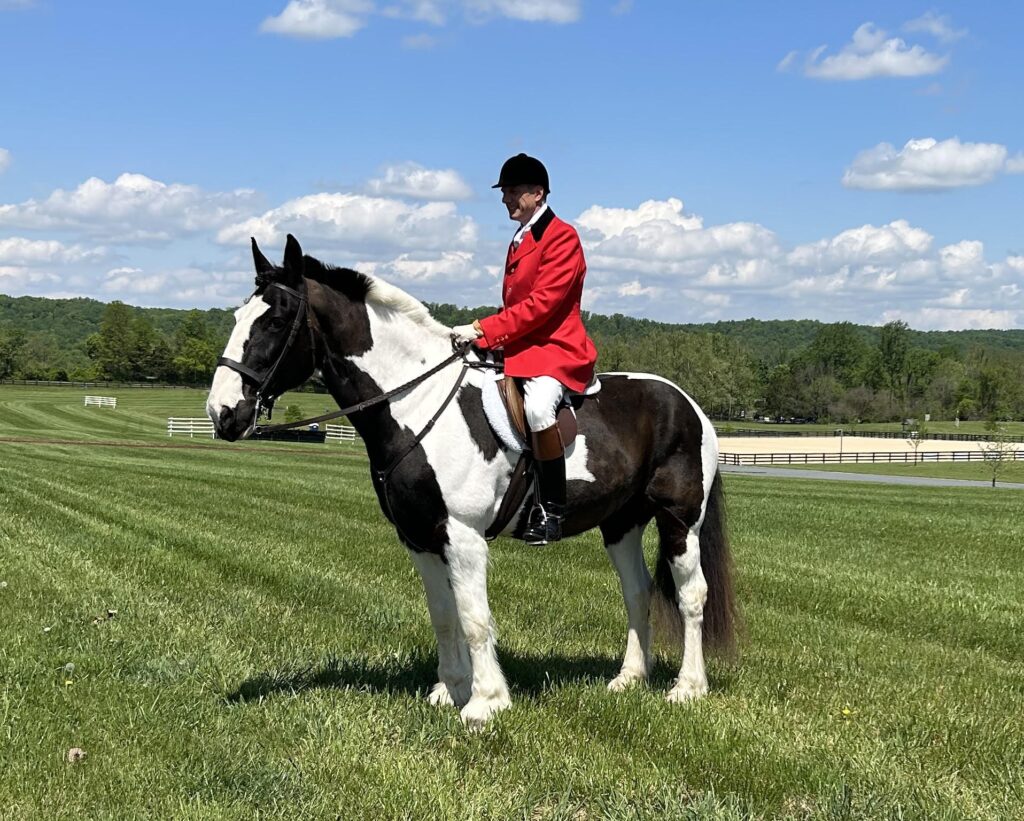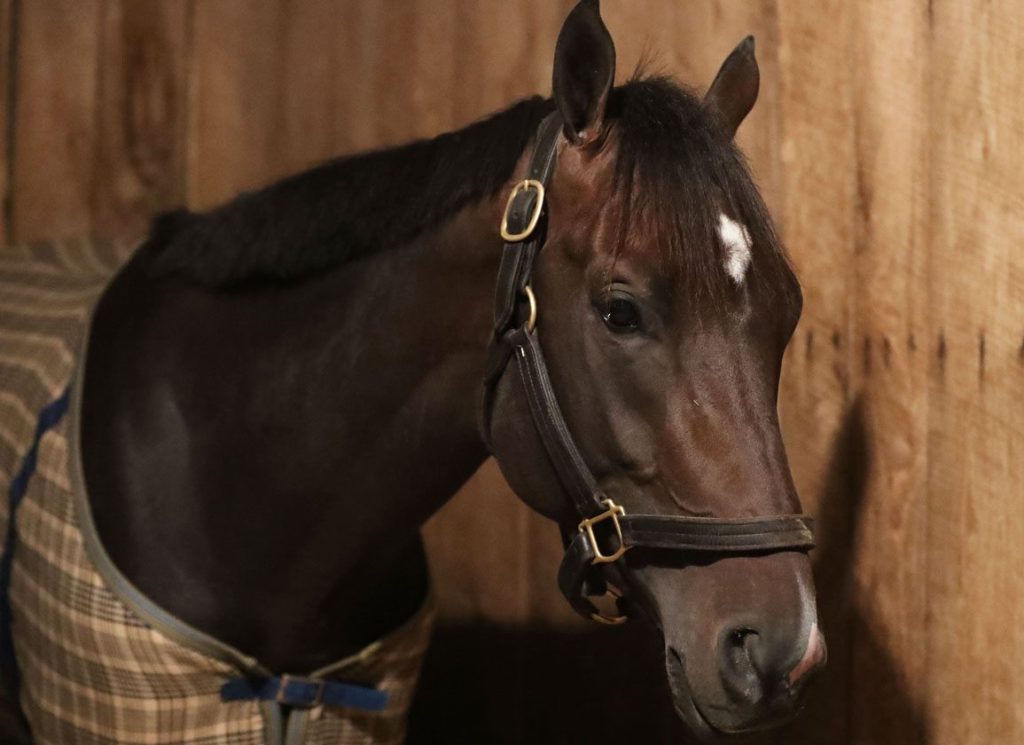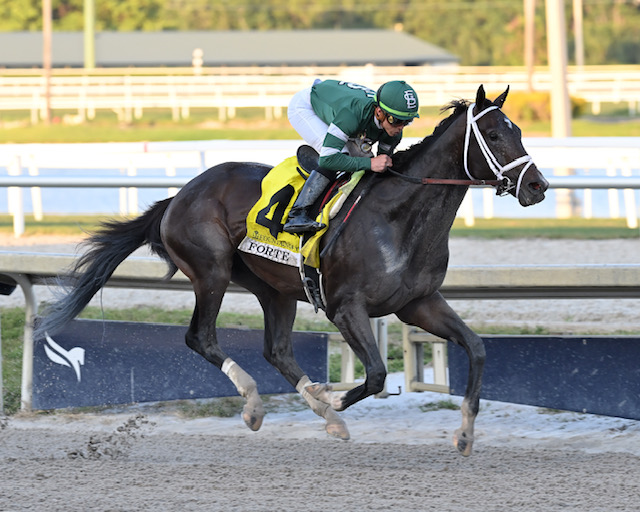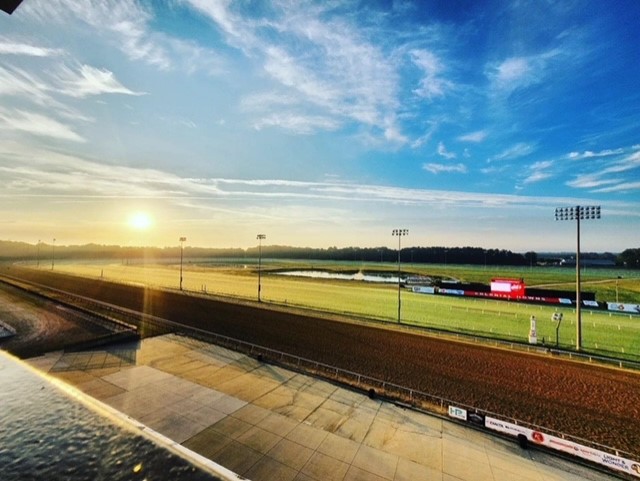Category Archives: News
Virginia Thoroughbred Owner Marshall Dowell Passes Away at 77
Virginia Thoroughbred Owner Marshall Dowell Passes Away at 77
The Virginia horse industry sends deep condolences to family and friends of Marshall Dowell, 77, who departed this world Thursday, April 27, 2023. He was preceded in death by his father, Claude Melvin Dowell; mother, Mary Elizabeth “Brown” Dowell; and brother, Claude “Melvin” Dowell, Jr.
Marshall is survived by his daughter Kimberly Dowell; son, Marshall Dowell, Jr.; grandchildren, Jacob, Tanner, Fairan, and Georgia; sister-in-law, Madeline Dowell; long-time girlfriend, Cathy; and his faithful road trip companion, Kim.
Marshall grew up in Lakeside (Richmond area) where his tenacious work ethic started. He worked several jobs as a young man, winning trips for top sales contests. He joined the Army where he became a special forces member in Vietnam. His service rendered him several medals. Returning home, he then turned his sights on the automotive business and became a successful car dealer. While in his tenure, he ventured into the Harley-Davidson Community with great success.
His passion then turned to thoroughbred horse racing, where his success was high among his peers. His horse, Scrappy T, was his most successful horse courtesy of a second-place finish in the memorable 2005 Preakness with the help of his trainer, W. “Robbie” Bailes. Overall, Scrappy T earned $645,919 from 17 starts including a win in the Grade 3 Withers Stakes, runner-ups in the Grade 2 Indiana Derby and Grade 3 Discovery Handicap, and a third in the Grade 1 Wood Memorial. Local fans got to see Scrappy T compete in the 2008 Old Nelson Handicap at Colonial Downs.
Another of Marshall’s best horses was Mint Slewlep who bankrolled $174,556. Career highlights for the bay horse included a win in the 2008 Da Hoss Stakes at Colonial and a seventh in the 2007 Preakness. He also competed in the Colonial Turf Cup in New Kent the same year.
Marshall’s Jakey D, winner of $200,000-plus, broke his maiden at Colonial in 2000. The Chimes Band gelding provided 31 top-three finishes from 64 starts.
Marshall’s final win came last October at Charles Town when his Theola Huggins broke her maiden in gate-to-wire fashion.
Overall, Marshall’s horses made 1,014 starts that produced 138 wins, 160 second place finishes and 139 thirds, good for $3,684,802 in purse monies.
Marshall’s life was one of passion, adventure, travel, and overall lust for life. He was loved by many. The family will received friends on Sunday April 30, 2023 at the Mechanicsville Chapel of the Bennett Funeral Home, 8014 Lee-Davis Rd, where services will be held 10 a.m. Tuesday, May 2, 2023. Interment will follow in Signal Hill Memorial Park.
Spring Racing Returns to Northern Virginia in The Loudoun Point-to-Point (4/23/2023)
The Loudoun Point-to-Point race took place on Sunday April 23 in Leesburg VA, the staple point-to-point event was a massive success both for Loudoun County and the Virginia Equine industry. Fans from all over the Washington D.C. and Northern Virginia area came out to enjoy the races! The scene was set with traditional derby hats and apparel.
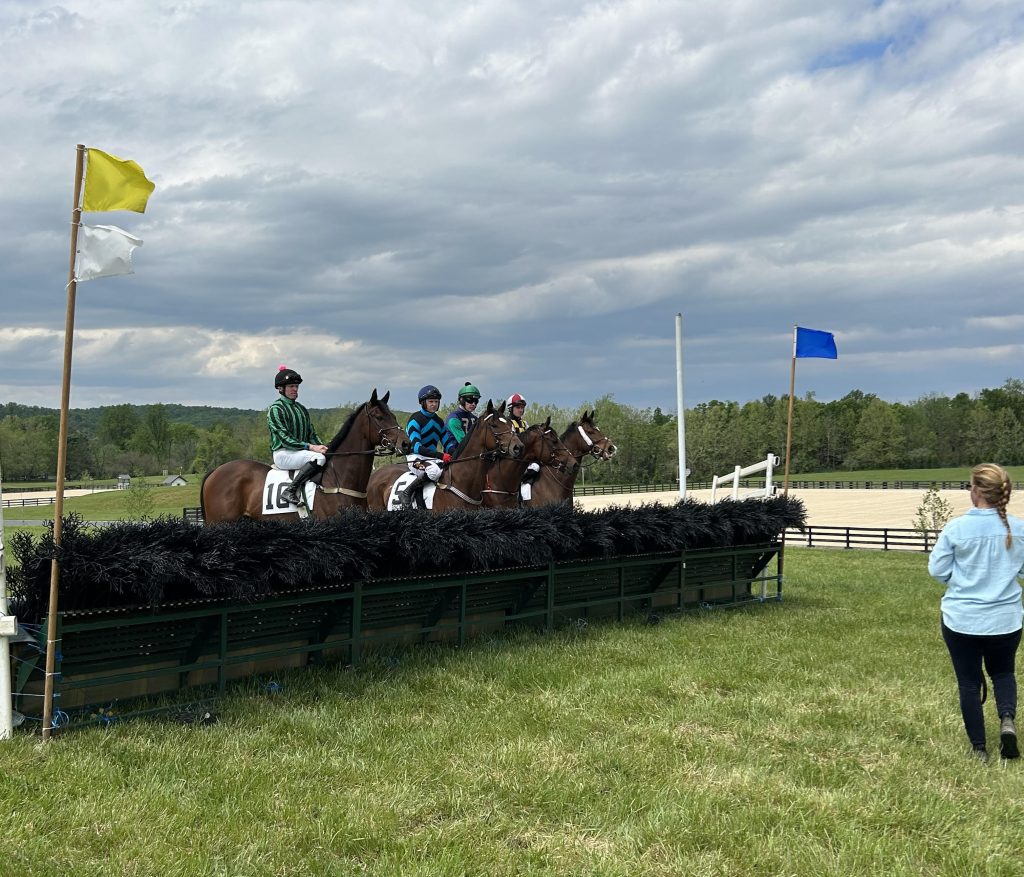
The event began with five pony races including a lead rope race, a large pony flat race, a Shetland pony flat race, a small pony flat race, and a medium pony flat race. The lead rope race sponsored by Don Devine was won by EHM stables Thumper ridden by Manuel Aguilera Jr. Thumper was trained by Betty McCue.
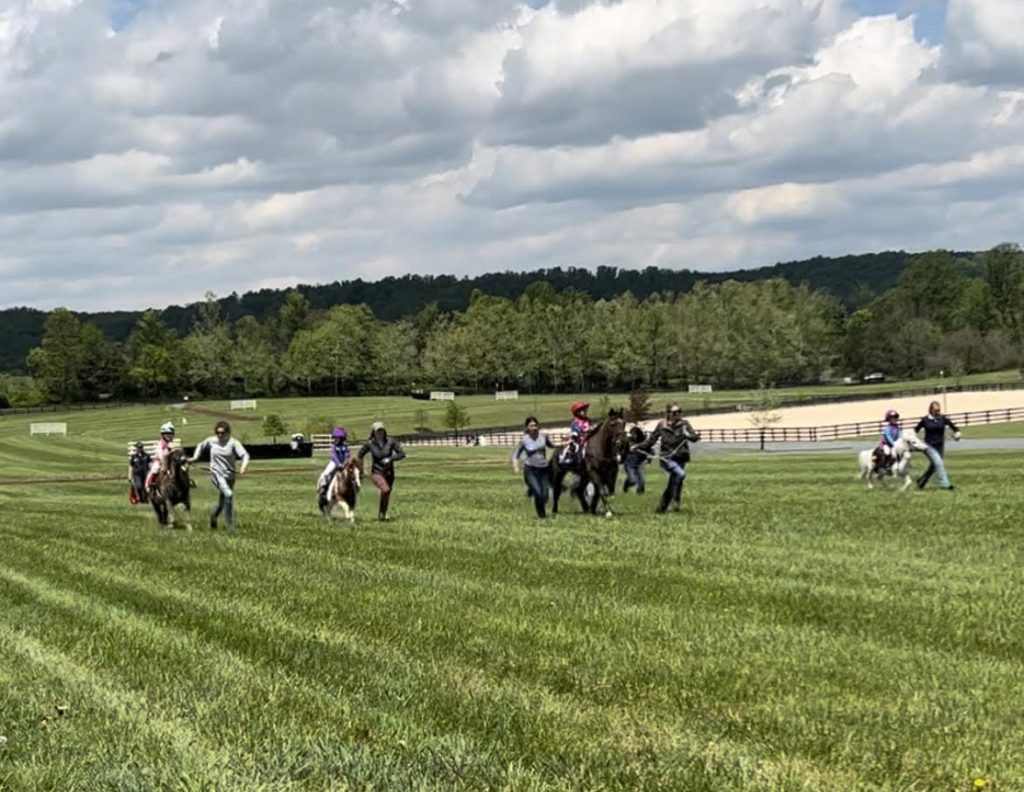
The large pony flat race (between 13.2 and 14.2 hands) for junior riders (below 16 years old) was won by Lesile Young’s Janneydancer ridden by Jaidyn Shore, trained by Suzanne Stettinius.
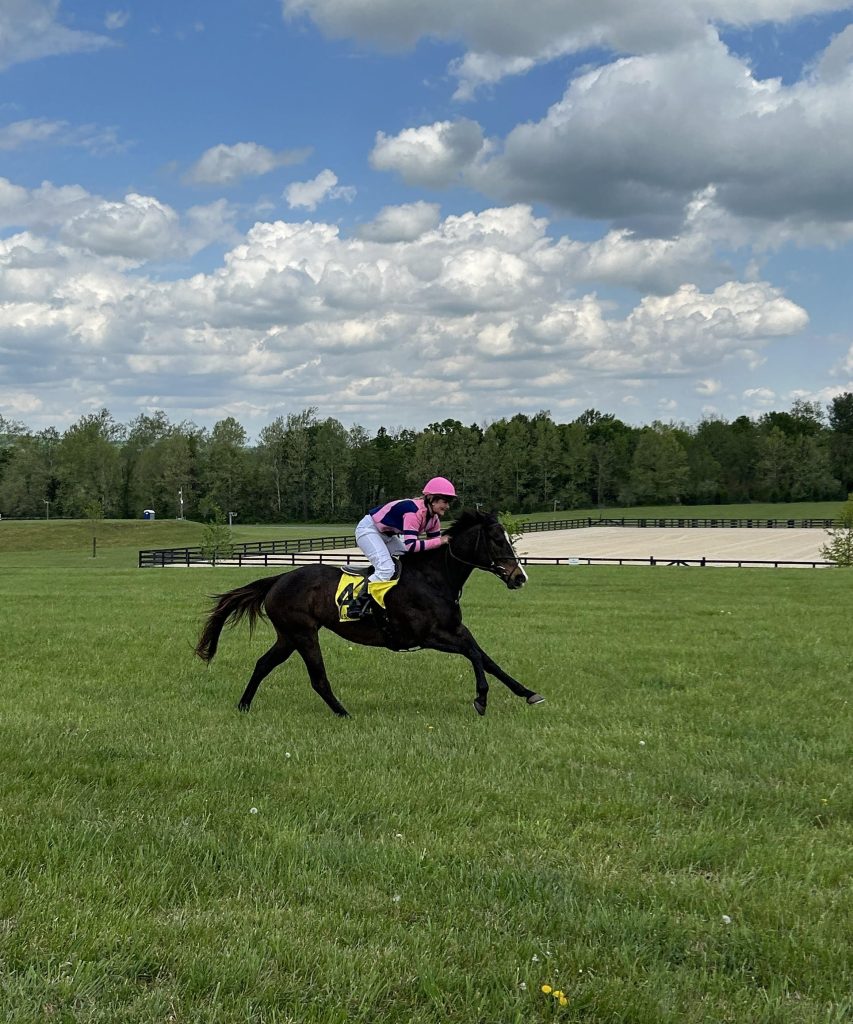
The second to last pony race was for small ponies under 12.2 hands tall, ridden for about a quarter of a mile by junior riders under 16 years old. The race was won by Christopher Kern’s Mallory, ridden by Cami Kern and trained by Christopher Kern and was seven lengths the best. in a time of 25 seconds.
Lastly, the medium pony flat race was held for ponies between 12.2 and 13.2 hands, also ridden by junior riders. This race went for three furlongs on the turf. It was won by Blueberry, a pony owned and ridden by Yomar Ortiz Jr, and trained by Betty McCue. Blueberry crossed the wire 12 lengths ahead of the second-place finisher in a time of 38 seconds.
The first and only hurdle race of the day, the Farm Credit Maiden Hurdle race was split into two divisions both went for 2-1/4 miles around the track and included 13 jumps. The first division was won by Rolling Tide LLC’s Hold Hard, ridden by Barry Foley and trained by Doug Fout. He won by a single length and the winning time was 5 minutes and 9 seconds.
The Second Division was won by Kiplin Hall’s Absam, ridden by Jamie Bargary, and trained by William Dowling. He won the race by a neck over Upland Flats Racing’s Moonshine Time. The winning time was 5:04 3/5.
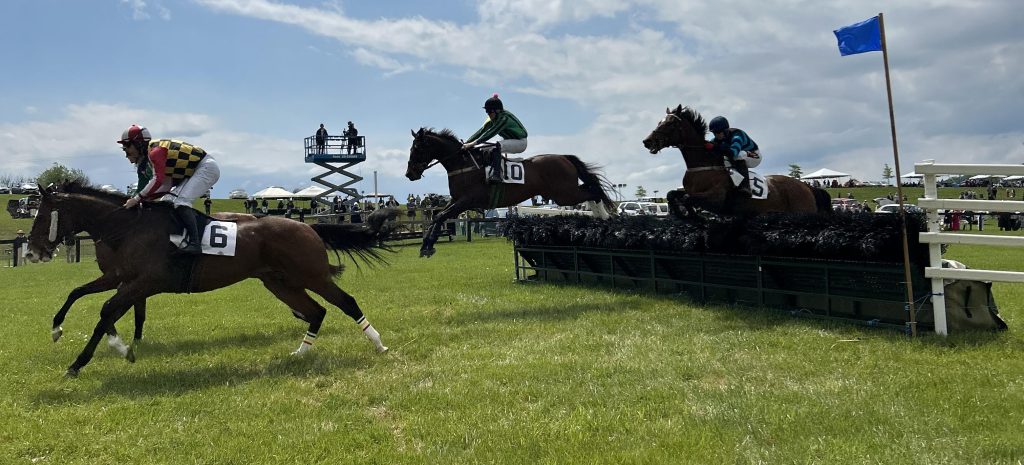
The Loudoun Hunt’s hounds came out and played with all the kids on the track. A highlight of the yearly event as always!
The third race was a mile and a quarter flat race sponsored by the VHBPA (Virginia Horsemen’s Benevolent and Protective association) for a purse of $2,000. The winner was Mint Meadows Farm LLC and Don Metzger’s B Determined, ridden by Erika Taylor, and trained by Suzanne Stettinius. The horse charged to victory with a time of 2 minutes and 25 seconds, winning by a neck.
Race number four was the Katherine F. Russell Memorial flat race for three-year-olds and up who had never won a flat race. This race went for about a mile and a half on the turf and was sponsored by Nadine Miglio Galvin and Carroll D. Galvin, MFH. The race was won by Beverly R. Steinman’s Dyna Mast, ridden by Barry Foley, and trained by Doug Fout. Dyna Mast won the race by one length in a time of 2 minutes and 45 seconds.
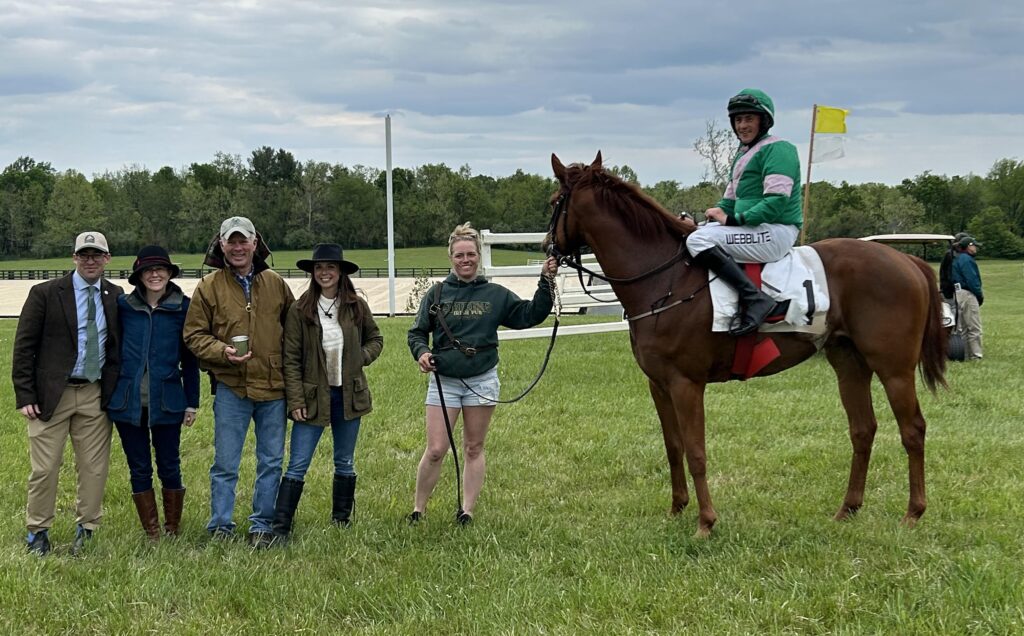
The fifth race on the card was the Takaro Farm Turf Cup, a mile and three quarters for horses three and up. The winner of the three-horse race was Charles C. Fenwick Jr’s Withoutdestination, ridden by Elizabeth Scully and trained by Todd J. Wyatt. He completed the race in 3 minutes and 20 seconds winning by ⅗ of a length.
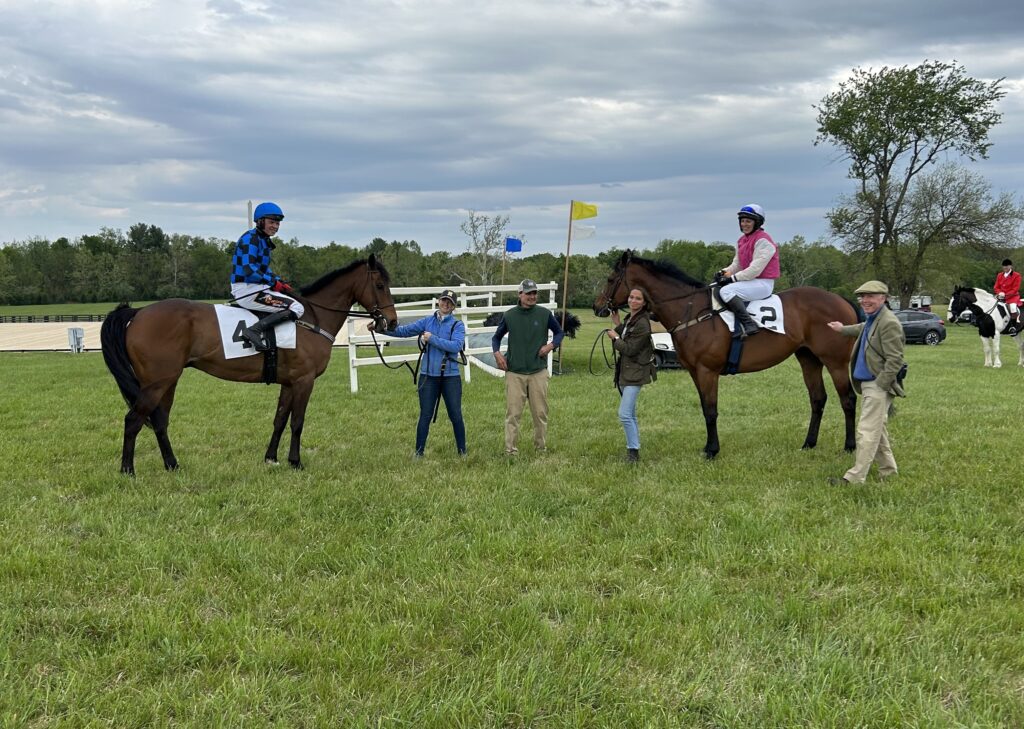
The last race on the card was the Dale Lumber Company Restricted young flat race for 5-year-olds and up to be ridden by amateur riders from the age of 15-20 years old. EHM Stable’s Prince Khozan dominated the two-horse field besting Camile DeStanley’s Blue Mandate by an eighth of a mile (furlong). Congratulations to winning rider Gretchen Eisenberg and trainer Manuel Aguilera Jr.
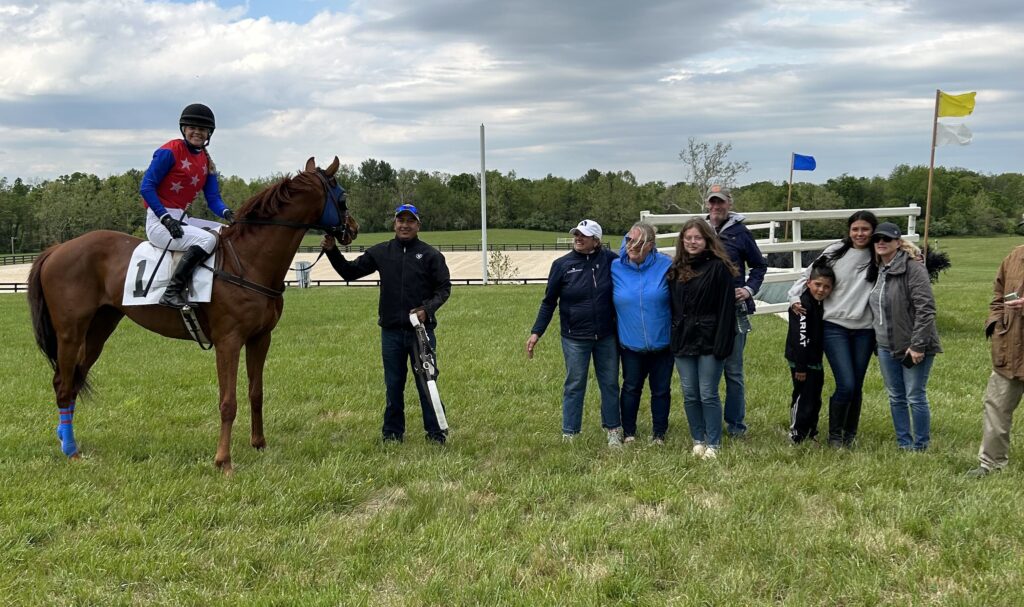
As always, the Loudoun Point-to-Point races were a massive success and truly embodied the rich history and culture that makes the equine industry in Virginia one of the greatest in the world.
A Personal Message from Kate Chenery Tweedy; The Daughter of Secretariat’s Owner
April 25, 2023
Dear Friends of Secretariat for Virginia,
We have great news! The beautiful bronze ‘Secretariat – Racing into History’ is generating contagious enthusiasm all over Virginia.
Ever since the statue arrived for temporary display in Ashland on March 31, a steady stream of people have come to see it from all over. They get out of their cars, stand, pose for selfies, smile and marvel at what a work of art it is. Then they open their wallets to show their appreciation. Donations are pouring in. In just two months of fundraising, we are well over halfway towards our goal of $695,000! Specifically, we have received over $80,000 in cash, over $20,000 in pledges, at least $100,000 in in-kind donations, and assurances from organizations, companies, private donors and foundations of $200,000 more. And the momentum is building. If you are one of our donors, your generosity has made an important contribution to this effort. We are very grateful.
Watching the visitors, I have been trying to articulate why people respond so emotionally to the statue and to the horse himself. As to the statue, it is obvious: it is an astonishing work of art. As for Secretariat, he was an equally astonishing athlete. He still awes us. But he also makes us feel good. In the 1970s, people said he restored their faith in humanity. How did he do that?
I think he inspired us because as humans, we are drawn to beauty, to stories or myths and to nature, especially to animals. Secretariat’s feats have become mythic. The way he ran was joyful. And he allowed us to experience pure animal power at its finest.
This is why I am working so hard to put this statue in Ashland. Mom spent the last 40 plus years of her life telling Secretariat’s story and connecting with the people who loved him. She recognized that’s what Secretariat did—by running so fast, by being so beautiful, by demonstrating so much heart—brought comfort and joy to people. She wanted to spread that feeling.
The monument is demonstrating the same effect as Secretariat had in the 1970s. It is a celebration of unparalleled achievement. Of grit and determination of the people who bred and raised him, including the grooms, the exercise riders, the jockeys and the trainer. Of the legacy of Central Virginia as the cradle of American horse racing.
The Secretariat monument is a permanent work of art that will inspire us and make us smile every time we see it. As you may know, the statue is leaving April 27 for the Triple Crown Tour. We want to make certain it returns, so please continue to support this campaign to bring Secretariat home to Virginia and install it in Ashland.
Thank you for your encouragement and assistance.
Sincerely,
Kate Chenery Tweedy
Donation links:
www.secretariatforvirginia.com
www.ashlandmuseum.org
https://www.gofundme.com/f/bring-the-secretariat-monument-to-ashland-va
HOW TO DONATE:
- Send checks payable to Ashland Museum with Secretariat in the memo line. Mail checks to PO Box 633 Ashland, VA 23005
- On-Line
- Ashland Museum: http://www.ashlandmuseum.org
- gofundme: https://www.gofundme.com/f/bring-the-secretariat-monument-to-ashland-va
QUESTIONS:
- Contact Wayne Dementi (804)363-0160
FOLLOW THE TRIPLE CROWN TOUR www.SecretariatForVirginia.com
Preview of Middleburg Spring Races, Set for Sat. April 22 at Glenwood Park
Originally Posted on 4/20/23 on Nationalsteeplechase.com, Written by Tod Marks
Enriched Gwathmey headlines action-packed Saturday in Virginia, Maryland
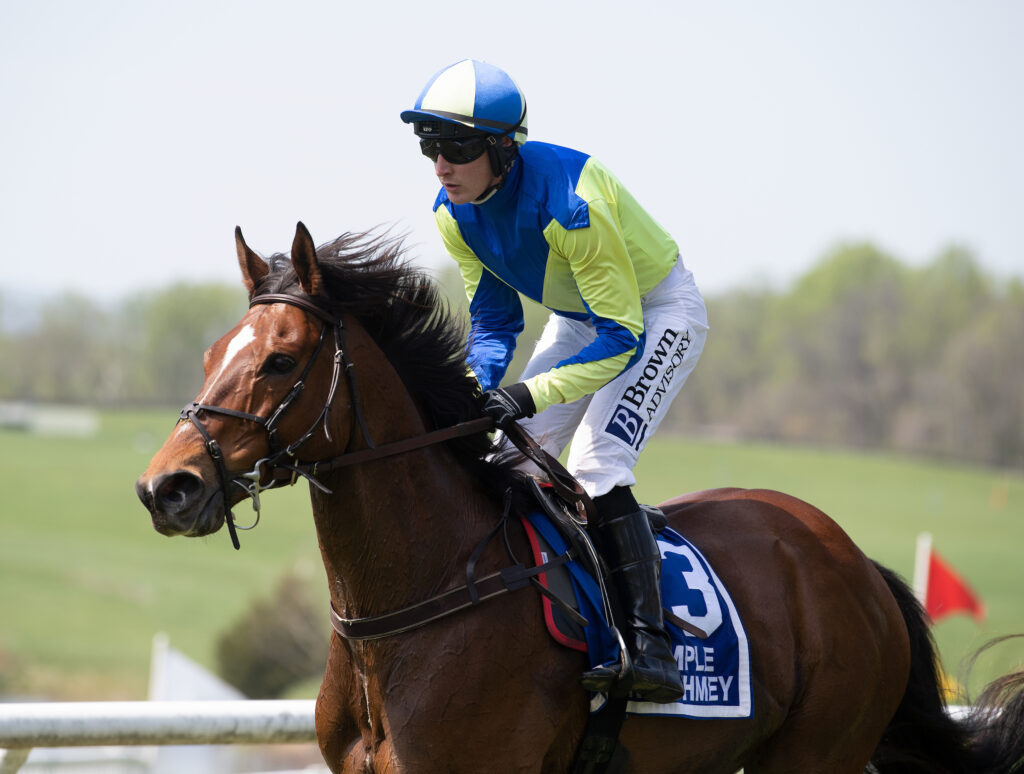
Snap Decision, Andi’amu return to action at the Middleburg Spring Races, while Maryland hosts the second leg of the Timber Triple in Butler.
Glenwood Park hosts stars and stakes action at the Middleburg Spring Races on Saturday with an eight-race card, anchored by the $100,000 Grade 2 Temple Gwathmey stakes and $25,000 Middleburg Hunt Cup timber stakes.
In all, $255,000 in purses are up for grabs, the third richest meet on the National Steeplechase Association spring calendar, behind only the Iroquois and Virginia Gold Cup races. Post time is 1 p.m. The Gwathmey, which annually draws top talent, has gotten a purse bump of $25,000.
Virginia’s oldest steeplechase, which dates back to 1911, the Middleburg Spring Races drew a record crowd on a beautiful day last year. The forecast is less optimistic for this year’s running, but while the weather may not be perfect, the competition couldn’t be better.
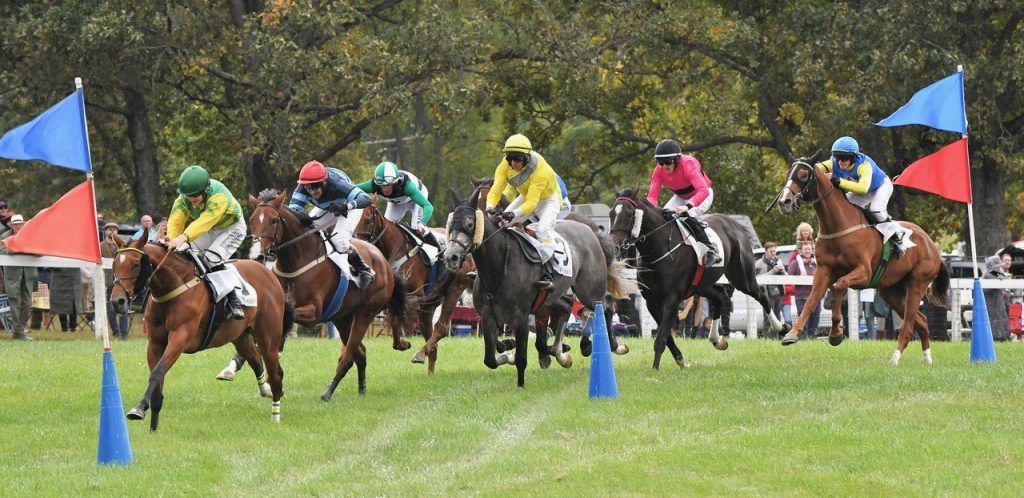
A brilliant performer since he made his NSA debut in 2019, Bruton Street-US’ Snap Decision, now 9, comes into the 2 1/2-mile Gwathmey well rested after an arduous campaign in which he conceded a lot of weight to his rivals under handicap conditions. When he finished second in last year’s Gwathmey, also a handicap, Snap Decision carried 14 more pounds than the winner, Iranistan. The two-time 2022 Grade 1 winner (Iroquois and Jonathan Sheppard) will again be toting highweight, of 158 pounds, on Saturday, 12 to 18 more than his four foes. Should the son of Hard Spun be victorious, he will pass the $900,000 mark in career earnings. Jack Fisher trains and regular rider Graham Watters has the mount.
Lining up against the 2022 Eclipse Award finalist will be Del Rio Racing, USA Steeplechase, and Upland Flats Racing’s Ask Paddington, trained by Keri Brion and ridden by last season’s top jockey, Parker Hendriks. A nine-time winner in the UK, the Irish-bred finished third in his NSA debut in the G1 Lonesome Glory at Aqueduct last fall, just three-quarters of a length behind Snap Decision, who gave way to the 41-1 winner Noah and the Ark. Ask Paddington finished a distant third to eventual Eclipse Award winner Hewick in the Grand National at Far Hills, the only jump race in which Snap Decision has ever finished off the board.
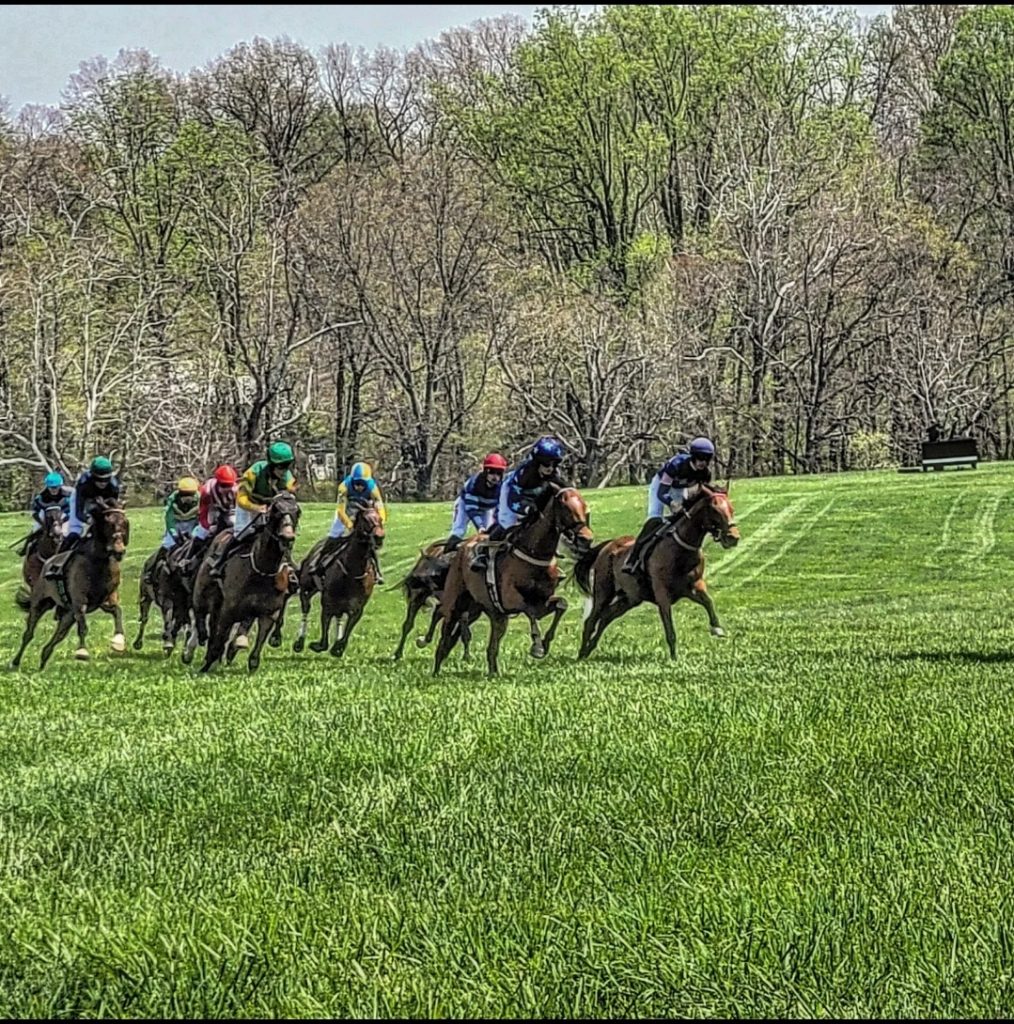
Madaket Stables and The International Ventures’ Going Country is another Irish-bred trained by Brion. Though he’s never won a stake, he has been in the thick of things in several outings, including two seconds, to Snap Decision in the Sheppard at Saratoga and champion mare Down Royal in the G2 Zeke Ferguson at Great Meadow in the fall.
A 10-time winner of nearly $350,000, Sharon Sheppard’s Recidean, trained by 2022 leading trainer Leslie Young, who is off to a fast start this season, was a two-time stakes victor last year, taking the G2 Semmes Memorial at Great Meadow, then closed out his campaign with a convincing tally in the Appleton hurdle stakes at Far Hills.
Completing the field is Irv Naylor’s Belfast Banter, an accomplished hurdler in Europe still looking for his first U.S. win. In four NSA starts in 2022 (three in G1 competition), the seven-year-old Irish-bred’s best finish was a second to Redicean in the Semmes. Cyril Murphy is the trainer.
The supporting card
Timber racing has been front and center early this spring, and the $25,000 Middleburg Hunt Cup at 3 1/4 miles has drawn the reigning champion, Ballybristol Farm’s Andi’amu, who won the race in 2019, and finished second last spring following nearly two years on the sidelines. Trained by Leslie Young, Andi’amu, a winner of more than $500,000, also captured the timber crown in 2019, and enters the Hunt Cup riding a two-race winning streak. Overall, the champ captured four stakes in 2022.
A group of familiar adversaries will take on the 14-year-old juggernaut, including Sheila Williams and Northwoods Stable’s Storm Team, who upset Andi’amu in last year’s Hunt Cup and again in the Brown Advisory timber stakes at Shawan Downs. The Hundred Acre Field’s Cracker Factory, trained by Mark Beecher, boasted back-to-back scores last season, breaking his maiden at Shawan Downs, then two weeks later taking the National Sporting Library & Museum Cup at Glenwood Park, defeating Storm Team, among others.
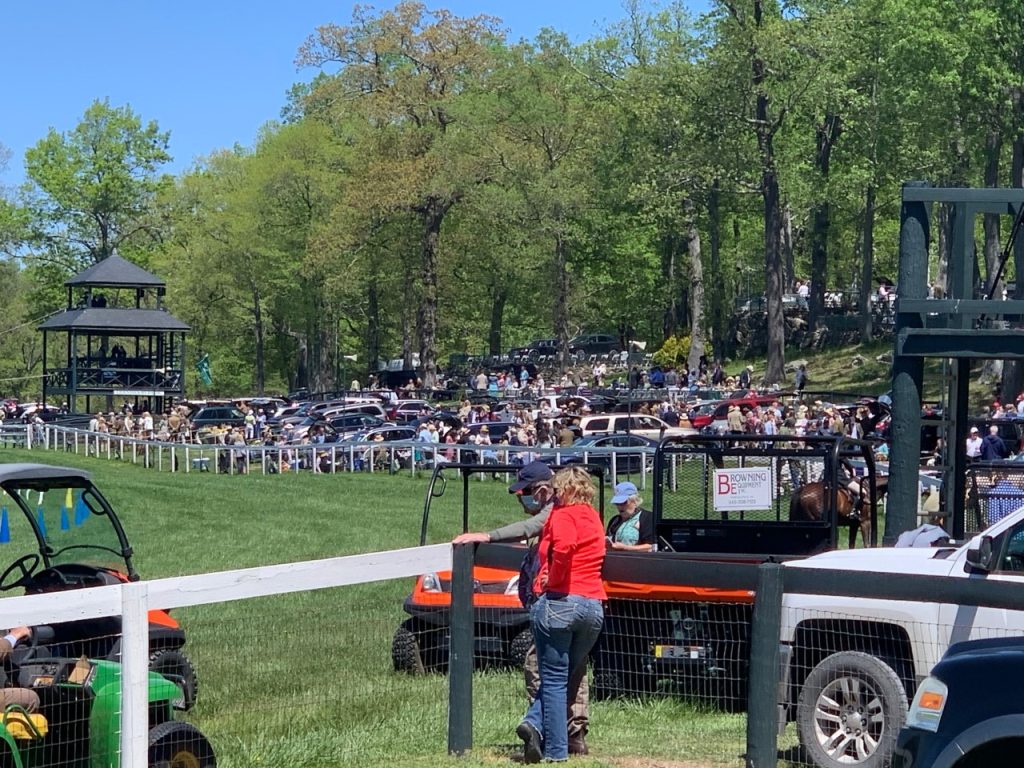
Upland Partners’ Mystic Strike is as accomplished as any runner, having won seven stakes in his venerable career, including the 2021 Middleburg Hunt Cup. At 14, he’s already made a pair of starts for trainer Todd McKenna, finishing a distant third to Tomgarrow in last week’s My Lady’s Manor Stakes, and a far-back second in his bow at Cheshire.
Stepping up in class, Northwoods Stable and Sheila Williams’ Notjudginjustsayin, who like stablemate Storm Team is trained by Jack Fisher. The Kentucky-bred broke his maiden over timber at Genesee Valley in the fall then promptly captured an allowance contest at the Pennsylvania Hunt Cup Races.
The rest of the card consists of four hurdle races at 2 1/8 miles, including a $35,000 allowance; $30,000 maiden special weights contest; $25,000 maiden for fillies and mares; and a $20,000 maiden for horses who have started for a claiming tag of $25,000 or less over jumps or on the flat. There’s also a $20,000 steeplethon over mixed obstacles at 2 5/8 miles and a 1 1/2-mile training flat event.
You can download the full entries here.
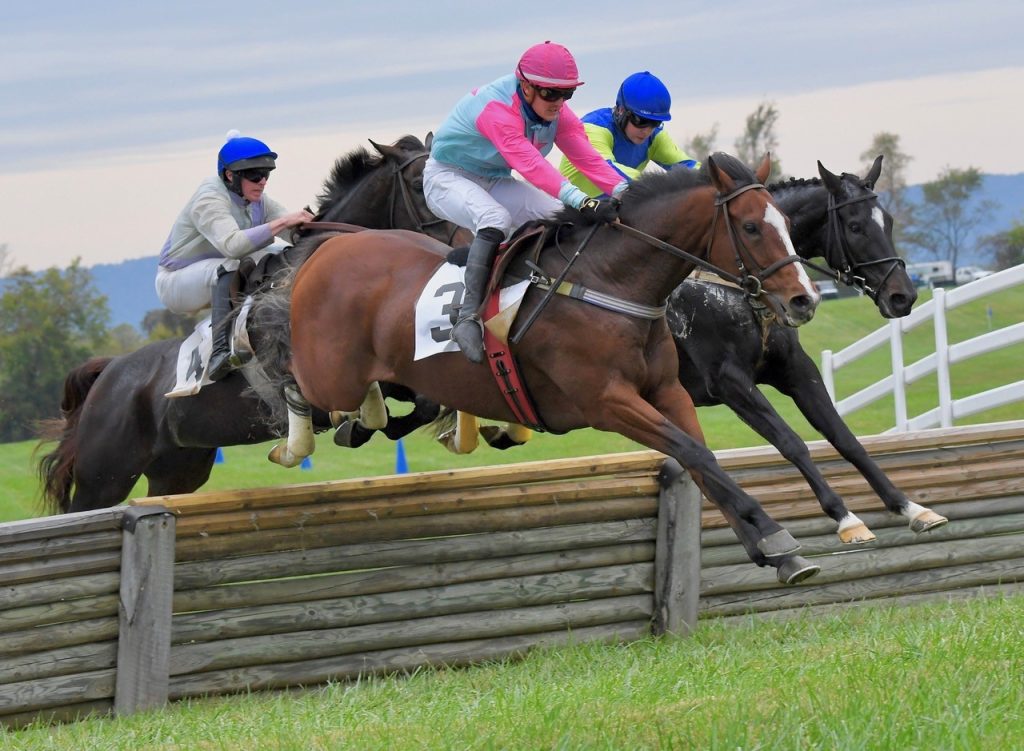
The Hunt Cup is the third race (2:10 p.m post time) while the Gwathmey is the fourth (scheduled to go off at 2:45 p.m). While all of the NSA meets will be streamed live, without commentary, on www.nationalsteeplechase.com, the Middleburg Races will also be streamed via America’s Best Racing, hosted by Dan Tordjman, the NSA’s Megan Connolly, and Bri Mott of StableDuel, starting at approximately 1 p.m. Eastern Time. The ABR show, presented by Brown Advisory, will offer on-site analysis of several major races and an inside look into the world of jump racing. Featured races on the April 22 Middleburg card include the Gwathmey, Middleburg Hunt Cup, Alfred Hunt steeplethon, and Glenwood allowance hurdle.
Additionally, the Middleburg Races will kick off the NSA’s partnership with StableDuel, where fans can have fun handicapping the races and compete for $2,000 in prize money. To learn how to play Saturday’s free contest, click here.
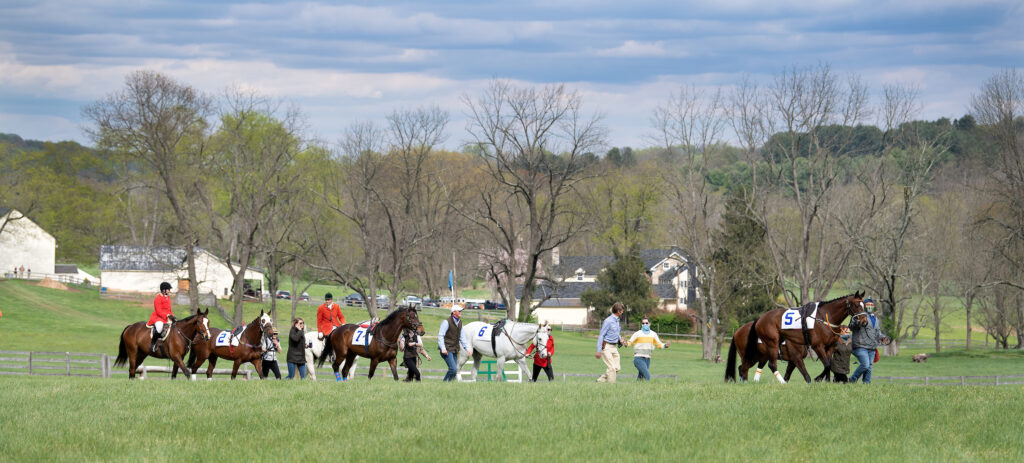
And at the Grand National…
Seven to contest second leg of Maryland Timber Triple
Timber racing returns to Maryland hunt country for the second Saturday in a row as seven runners are expected to go to the post in the 120th running of the historic contest in Butler.
This year’s Grand National, at a distance of 3 1/4 miles over 18 fences, carries a purse of $30,000. The event is restricted to amateur riders. Gates open at noon, and the four-race card gets underway at 2:30 p.m. The Grand National is the first race on the card.
Only four of the runners entered in the Grand National are among those nominated to the longest and most demanding race of the series, the 126th Maryland Hunt Cup, which will be run at 4 miles on April 29. Vintage Vinnie, winner of the previous two Hunt Cups in record-setting performances, finished second in the first leg of the series last week, the My Lady’s Manor stakes, and is sitting out the Grand National. Tomgarrow, who won the My Lady’s Manor, is not running in either of the other legs.
This year’s Grand National field includes a mixed batch of runners at various stages of their respective careers.
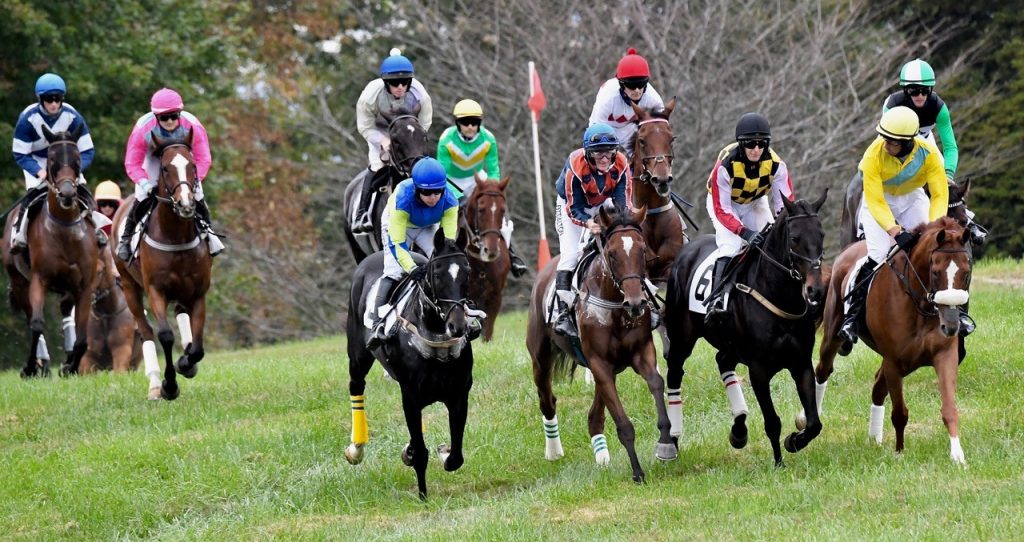
South Branch Equine’s Master Seville, trained by Mark Beecher, is a perfect two for two this season in the allowance ranks. He handily defeated Charlie Fenwick’s Royal Ruse, who is also in the field, last week at The Manor Races. Royal Ruse, trained by Sanna Neilson, hasn’t won in more than two years, but finished second in the Grand National in 2021.
Lightly raced Monbeg Stream, who runs in the colors of Tuscany Racing for trainer Leslie Young, also enters the Grand National off of two straight 2021 timber victories, a maiden followed by the Mason Houghland allowance at the Iroquois Races.
Irv Naylor’s Withoutmoreado, trained by Kathy Neilson, was third in a timber allowance at last year’s Grand National meet, then followed it up with a victory in similar company at Winterthur. In his two stakes tries, Withoutmoreado finished a distant second to Andi’amu at Willowdale and fourth to that same rival at the International Gold Cup in 2022.
Since coming over from Ireland in 2022, Armata Stable’s Our Friend has two wins – a maiden and allowance score – in three outings for trainer Joe Davies.
A one-time claimer on the flat, Upland Partners’ Shootist has carved out a nice career for himself over timber. Trained by Todd McKenna, the nine-year-old son of Smart Strike has six top-three finishes in eight starts. And in his last stakes outlining in 2022, he finished second – albeit far back – to champion Andi’amu.
The lone stakes winner in the field (the 2021 Willowdale Steeplechase), Kiplin Hall’s Renegade River hasn’t won in seven tries since then. But the 10-year-old son of Bellamy Road gave dual Maryland Hunt Cup winner Vintage Vinnie all he could handle in his most recent start, just missing by a half length in an allowance race at the 2022 My Lady’s Manor races.
Rounding out the rest of the all-timber card is a $12,500 maiden at 3 miles; the $17,500 Benjamin H. Murray Memorial allowance at 3 1/4 miles; and $10,000 Western Run Plate at 3 miles for apprentice riders.
You can download the full entries here
Virginia Connected Forte Arrives at Churchill Downs for the May 6 Kentucky Derby
Forte, who is currently the early favorite to win the Kentucky Derby, is an important horse for the state of Viriginia. He was bred by Virginia Thoroughbred Association President Amy Moore and spent much of his upbringing at her South Gate Farm in Millwood, VA. He is currently sitting at 7-2 odds; we will be cheering for him in the “Run for the Roses on Saturday May 6th.”
Forte has won his last 5 races all of which were grade 1 stakes, with the exception of the grade 2, $400,000 Fountain of Youth Stakes at Gulfstream Park. He has won 6 of the 7 races he has ran in his career, earning an astonishing $2,409,830 in purses. He has notable victories in Derby preps such as the Hopeful Stakes in Saratoga, The Claiborne Breeders Futurity at Keeneland, The FanDuel Breeders’ Cup Juvenile also at Keeneland, and Curlin Florida Derby at Gulfstream Park.
The Kentucky Derby can be wagered on at all Rosie’s locations around the Commonwealth, at the Virginia Gold Cup, Buckets Bar & Grill in Chesapeake, Breakers Sports Grill in Henrico, TVG.com, Xpressbet.com, Twinspires.com, NYRABets.com, and for the first time ever Kentucky Derby wagering will be available at Shenandoah Downs Harness Track in Woodstock, VA.
Originally posted on 4/17/2023 on thoroughbreddailynews.com
St. Elias Stable and Repole Stable’s GI Kentucky Derby favorite Forte (Violence) arrived at Churchill Downs on Monday following a 14-hour van ride from trainer Todd Pletcher’s winter base of Palm Beach Downs in South Florida. Last year’s champion juvenile colt bedded down in his barn 39 and joined fellow Derby hopefuls Kingsbarns (Uncle Mo) and Tapit Trice (Tapit), both who arrived in Louisville on Sunday.
Forte, who won last year’s G1 Breeders’ Cup Juvenile and G1 Hopeful S. before being honored with the Eclipse Award, has won both the GII Fountain of Youth S. and GI Curlin Florida Derby in both starts this year.
NSA Sanctioned Spring Steeplechase Meets Set at Three Different Venues
sted April 22 at Glenwood Park followed by the Foxfield Races in Charlottesville April 29 and the Virginia Gold Cup on May 6 at Great Meadow in The Plains — which also features Kentucky Derby simulcast wagering.
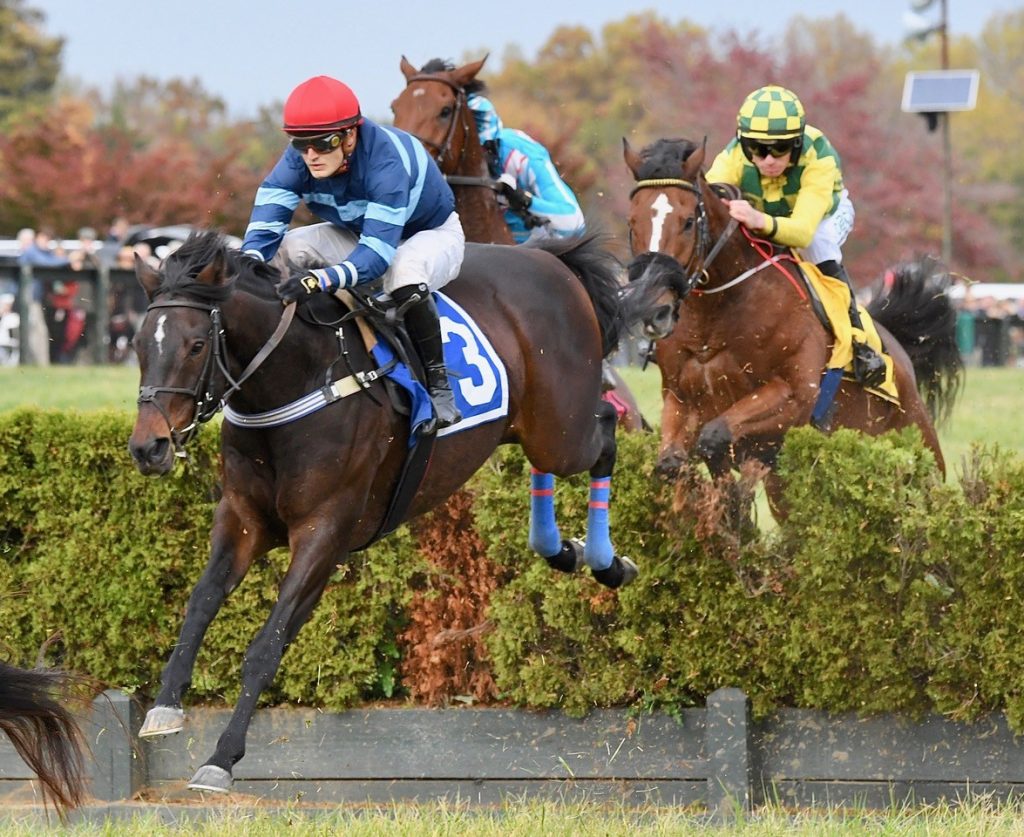
The Point-to-Point (PTP) season, which began March 4, is in the homestretch with two events remaining — the Loudoun Hunt PTP at Morven Park in Leesburg on April 23 and the Middleburg Hunt PTP at Glenwood Park on April 30. Highlight of early spring action took place at the Old Dominion Hounds PTP April 8 in Washington, Virginia when three NSA sanctioned races took place at the Ben Venue Farm for the first time ever with purses totaling $65,000.
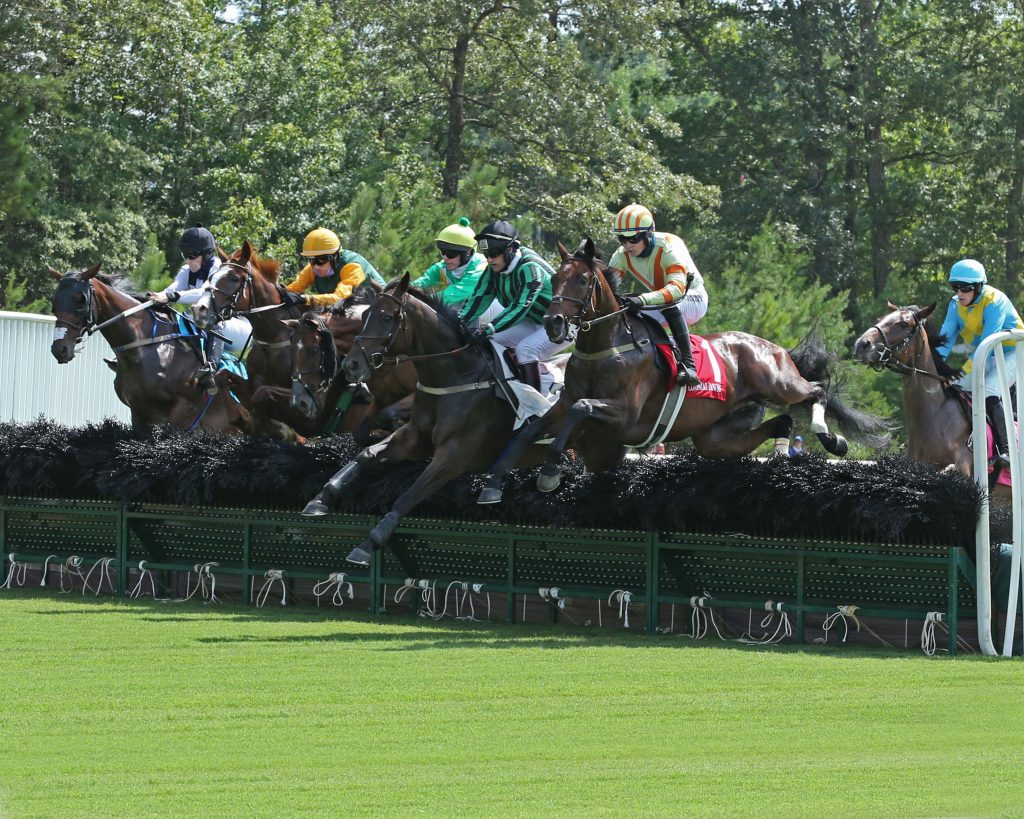
Looking ahead, Colonial Downs will host two jump races every Friday this summer from July 14 – September 8 and for the first time since reopening in 2019, they will be part of the pari-mutuel cards. The steeplechase races will be programmed as races one and two on Fridays. A pair of $75,000 stakes highlights the ’23 summer campaign. The Randolph D. Rou
Colonial Stall Applications Due By May 3; First Condition Book Available Online
Stall applications for the Colonial Downs summer season are available now at colonialdowns.com — and virginiahorseracing.com — and must be turned in on or before May 3. The first of two Condition Books is also available online at the same sites. The New Kent barn area will open June 19 and the track will be available for training beginning June 22. Purses, which averaged $622,000 per day last year, will safely be over $650,000 this year said Frank Petramalo, VAHBPA Executive Director. “With the addition of the Arlington Million Day stakes, total purse money for the meet will be in the $19 million range,” he said.
The Secretariat Turf Course was set ablaze March 28 in an annual controlled burn that helps prepare and nurture the country’s widest grass racing surface for the upcoming meet. The burn takes dead cover off the turf in a rapid manner and allows it to grow back more plush, green and safe within weeks. The controlled burn method is preferred to cutting the grass since the process is quicker and more efficient.
Colonial’s turf irrigation system also underwent a complete renovation and material has been added to the 1 ¼ miles dirt oval.
“We look forward to working with a new partner (Churchill Downs Incorporated) in the race meet that brings a wealth of experience of putting on great racing events,” added Petramalo.
Colonial Downs 2023 Stakes Schedule Announced
A record of more than $5.2 million in stakes purses will be up for grabs at the upcoming 27-day meeting at Colonial Downs which runs from Thursday, July 13 through Saturday, September 9.
The total is buoyed by the relocation of the Grade I Arlington Million, Grade I $500,000 Beverly D. and Grade II $500,000 Secretariat Stakes from their long-time home at Arlington International Racecourse (the Million and Beverly D. were raced at Churchill Downs in 2022). In addition, the Grade III New Kent County Virginia Derby will carry a $500,000 purse, $200,000 more than last year, and its sister race the (Listed) Virginia Oaks, has been kicked up by $50,000 to $250,000.
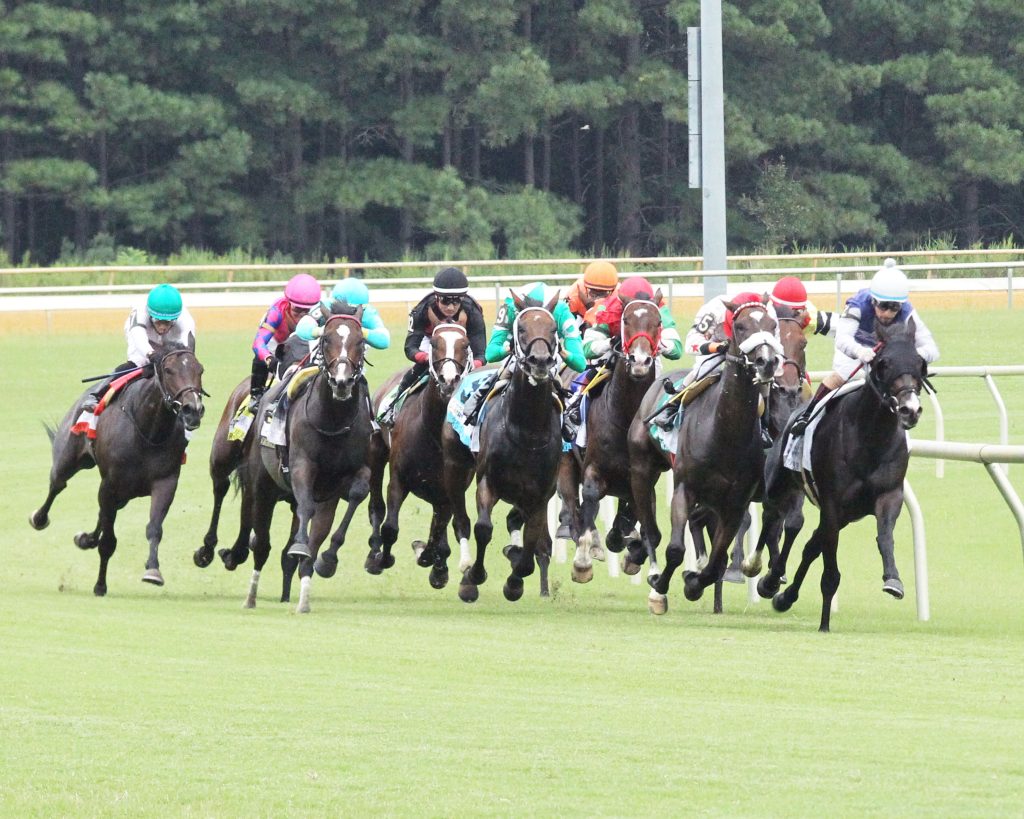
The Million, Beverly D., and Secretariat will be raced on Saturday, August 12, the traditional weekend for the internationally renowned trio. The Million will be run at 1-1/4 miles and the Beverly D. will be contested at 1-3/16 miles while the one-mile Secretariat leads perfectly into the nine-furlong Virginia Derby four weeks later closing day Saturday, September 9.
It seems only fitting that the Secretariat, named for the Virginia-bred 1973 Triple Crown winner, has now found a home in the Commonwealth as the 50th anniversary of “Big Red’s” Triple Crown is celebrated.
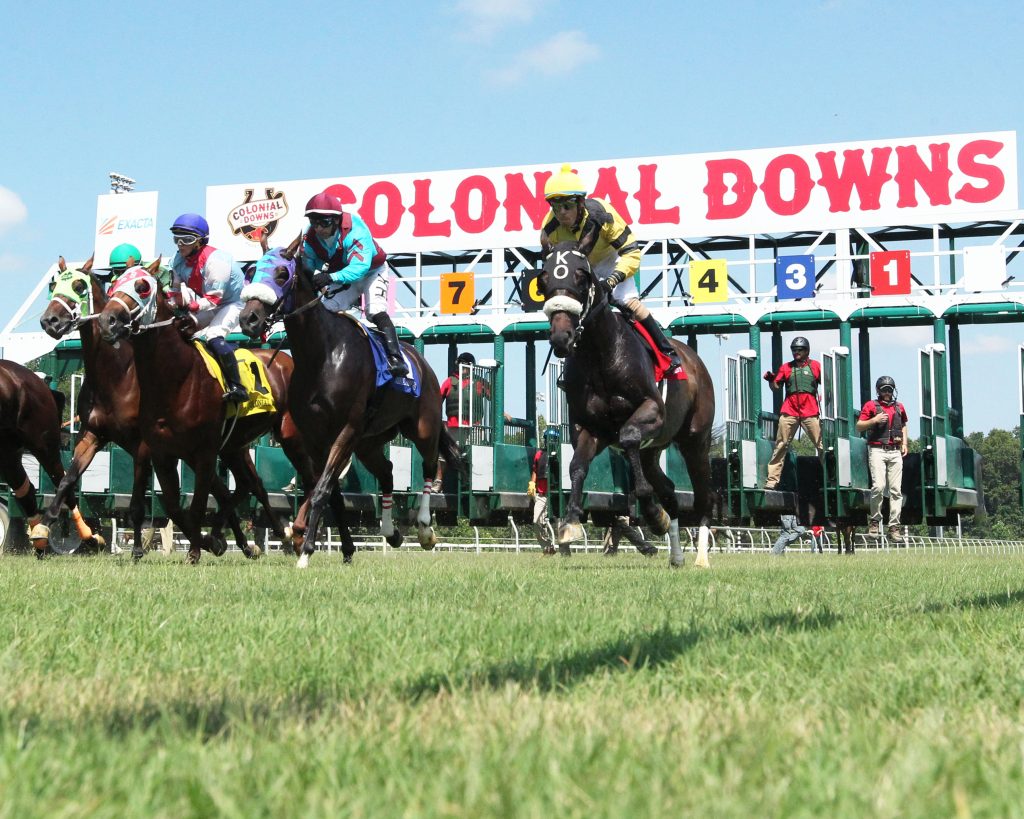
The aforementioned Virginia Derby will headline a card with $1.3 million in stakes purses. In addition to the Virginia Derby and Oaks, the closing day program will include the $150,000 Da Hoss Stakes for older horses at 5 ½ furlongs on turf, $150,000 Colonial Cup for older horses at 1-1/2 miles, $125,000 Rosie’s Stakes for 2-year-olds sprinting 5 ½ furlongs on turf, and $125,000 Kitten’s Joy Stakes for 2-year-olds over a two-turn 1-1/16 miles on the turf.
The stakes program kicks off opening weekend with a quartet of turf races for Virginia-bred or -sired older runners on Saturday, July 15: the $125,000 Edward P. Evans at a mile, the $125,000 Brookmeade for filles and mares at 1-1/16 miles, and the $125,000 Punch Line and $125,000 Tyson Gilpin both at 5 ½ furlongs with the latter of the pair restricted to fillies and mares.
A pair of $150,000 open stakes races – the Van Clief and the Andy Guest – headline the following Saturday, July 22. Both races are carded at 5 ½ furlongs with the Andy Guest restricted to fillies and mares.
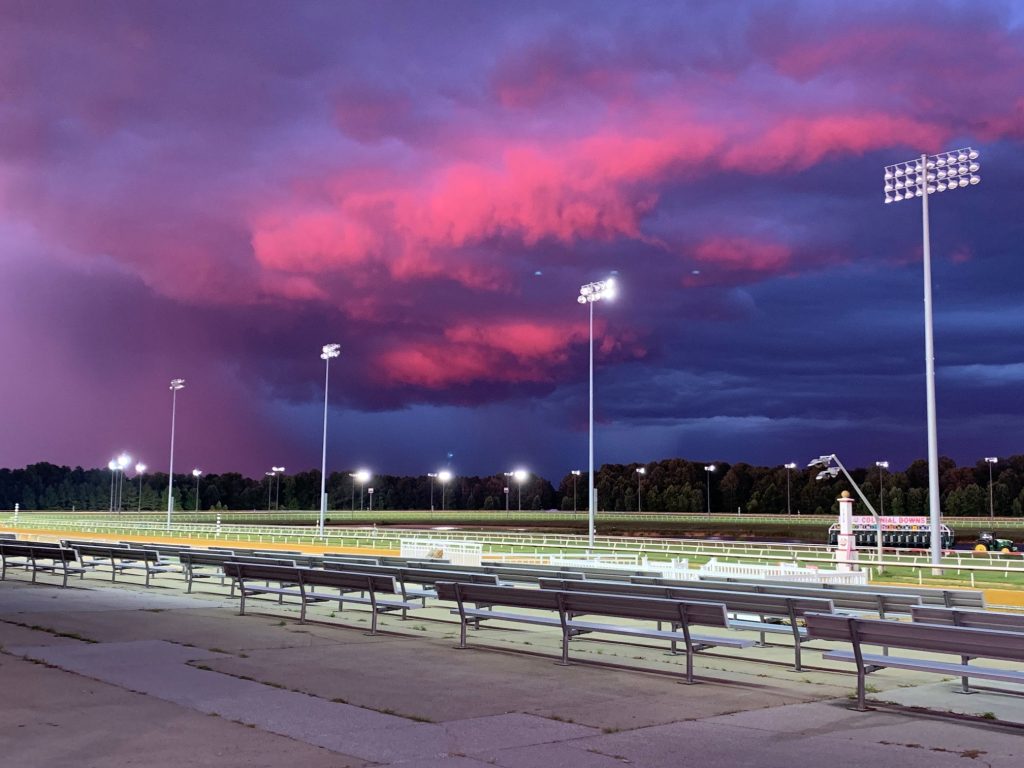
The $100,000 Housebuster Overnight Handicap for 3-year-olds at 7 dirt furlongs will be showcased on the July 29 card.
Two-year-olds are featured on Saturday, August 5 with the $150,000 Keswick for filles going five furlongs on the dirt and the $150,000 Hickory Tree Stakes for Virginia-bred juveniles also at five furlongs.
The Saturday, September 2 card is highlighted by a quintet of stakes races all on turf: the $150,000 Jamestown Stakes is for Virginia-bred or -sired 2-year-olds going 5 ½ furlongs while the remaining four events are for Virginia-restricted horses – the $150,000 Meadow Stable for older horses at 5 ½ furlongs and its female companion race the $150,000 Camptown, and the $150,000 Bert Allen and its filly and mare counterpart the $150,000 Nellie Mae Cox, both at 1-1/16 miles.
******************
Colonial Downs 2023 Stakes Schedule Announced
A record of more than $5.2 million in stakes purses will be up for grabs at the upcoming 27-day meeting at Colonial Downs which runs from Thursday, July 13 through Saturday, September 9.
The total is buoyed by the relocation of the Grade I Arlington Million, Grade I $500,000 Beverly D. and Grade II $500,000 Secretariat Stakes from their long-time home at Arlington International Racecourse (the Million and Beverly D. were raced at Churchill Downs in 2022). In addition, the Grade III New Kent County Virginia Derby will carry a $500,000 purse, $200,000 more than last year, and its sister race the (Listed) Virginia Oaks, has been kicked up by $50,000 to $250,000.
The Million, Beverly D., and Secretariat will be raced on Saturday, August 12, the traditional weekend for the internationally renowned trio. The Million will be run at 1-1/4 miles and the Beverly D. will be contested at 1-3/16 miles while the one-mile Secretariat leads perfectly into the nine-furlong Virginia Derby four weeks later closing day Saturday, September 9.
It seems only fitting that the Secretariat, named for the Virginia-bred 1973 Triple Crown winner, has now found a home in the Commonwealth as the 50th anniversary of “Big Red’s” Triple Crown is celebrated.
The aforementioned Virginia Derby will headline a card with $1.3 million in stakes purses. In addition to the Virginia Derby and Oaks, the closing day program will include the $150,000 Da Hoss Stakes for older horses at 5 ½ furlongs on turf, $150,000 Colonial Cup for older horses at 1-1/2 miles, $125,000 Rosie’s Stakes for 2-year-olds sprinting 5 ½ furlongs on turf, and $125,000 Kitten’s Joy Stakes for 2-year-olds over a two-turn 1-1/16 miles on the turf.

The stakes program kicks off opening weekend with a quartet of turf races for Virginia-bred or -sired older runners on Saturday, July 15: the $125,000 Edward P. Evans at a mile, the $125,000 Brookmeade for filles and mares at 1-1/16 miles, and the $125,000 Punch Line and $125,000 Tyson Gilpin both at 5 ½ furlongs with the latter of the pair restricted to fillies and mares.
A pair of $150,000 open stakes races – the Van Clief and the Andy Guest – headline the following Saturday, July 22. Both races are carded at 5 ½ furlongs with the Andy Guest restricted to fillies and mares.
The $100,000 Housebuster Overnight Handicap for 3-year-olds at 7 dirt furlongs will be showcased on the July 29 card.
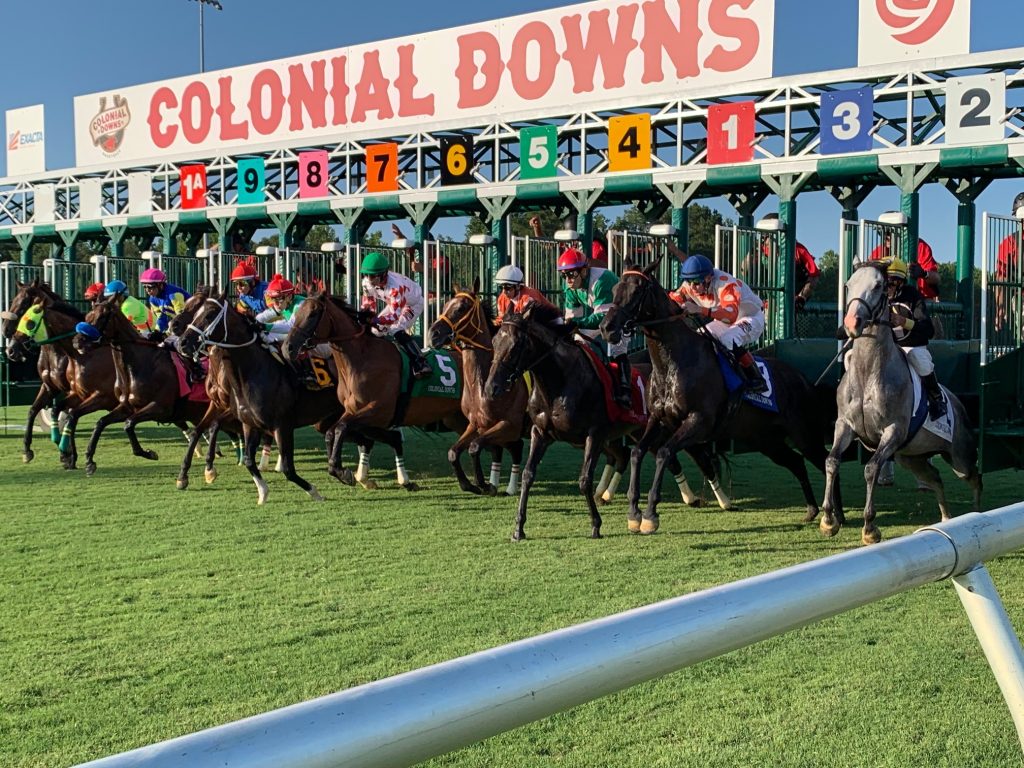
Two-year-olds are featured on Saturday, August 5 with the $150,000 Keswick for filles going five furlongs on the dirt and the $150,000 Hickory Tree Stakes for Virginia-bred juveniles also at five furlongs.
The Saturday, September 2 card is highlighted by a quintet of stakes races all on turf: the $150,000 Jamestown Stakes is for Virginia-bred or -sired 2-year-olds going 5 ½ furlongs while the remaining four events are for Virginia-restricted horses – the $150,000 Meadow Stable for older horses at 5 ½ furlongs and its female companion race the $150,000 Camptown, and the $150,000 Bert Allen and its filly and mare counterpart the $150,000 Nellie Mae Cox, both at 1-1/16 miles.
******************


